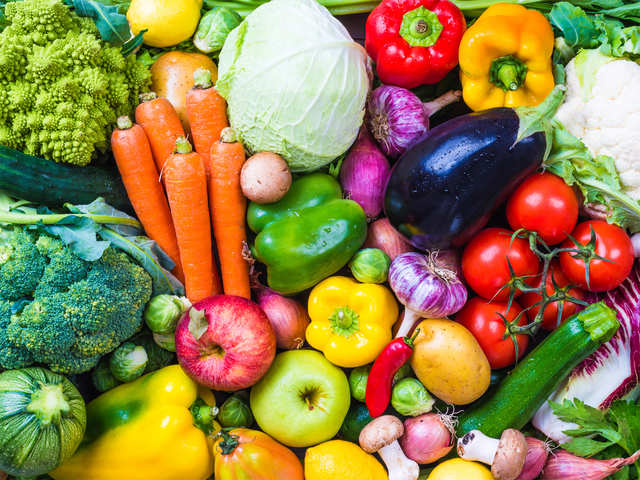Nutrition Plan For Soccer Players


Soccer is one of the most widely played sports in the world. Who better to understand that good nutrition is the cornerstone of exceptional athletic performance than soccer players?
Consider this: the sports sector is a huge success. Sports nutrition has always been two steps ahead due to fierce competition and the magnitude of gains and losses at stake.
If you wish to step into the shoes of a celebrity athlete, researching their soccer nutrition may be worthwhile.
This diet was chosen because soccer athletes have proven time and time again that excessive fad diets are not something you should try. In general, the diet they follow is free of unreasonable restrictions and deprivations. On the contrary, it provides a wide range of options.
Soccer players are always accompanied by a professional nutritionist, whose job is to ensure that the athletes are getting enough nutrients and minerals, proteins, healthy carbs, and fats. Everything that helps them get stronger, faster, and healthier. They also take care to keep the squad away from potentially dangerous chemicals, GMOs, and other inflammatory items.
So, here’s a nutrition plan for soccer players’ athletic diet:

Food intake for Soccer Players
Foods that are nutritious have the ability to re-energize your body for athletics and other activities. We may lose weight, get healthier, and feel more confident by eating at the proper time and with the right foods. On the other side, malnutrition causes persistent weariness, shortness of breath, and weaker bones and joints. As a result, there is a higher chance of injury and a slower healing time.

Soccer players’ 5-time meals frequently look like this:
- Breakfast
- Lunch
- Pre-match meals
- Dinner
- Evening snacks
The pre-game food provides energy for the entire game. No one can afford indigestion before a major game, thus the menu before the game must be well-plann. You don’t want that either before or after your workout.
Food temperature
Meals can’t be serve too cold or too hot, especially when it comes to pasta, soup, rice, meat, and fowl. Neither of these foods is excellent for digestion.
Cooking methods
The most popular and healthy cooking methods include boiling, steam cooking, baking, and grilling.
A word about frying
If frying is necessary, use the smallest amount of olive or coconut oil possible. It is not recommend to use sunflower oil or any other sort of shortening.
Unhealthy fats
Fatty meals must be avoid at all costs.
Spices
All flavoring spices and herbs should be natural and fresh.
Baked products
It’s crucial to have a wide range of multigrain baked items on hand. Walnut bread, spelled bread, black and white buns, rosemary, or sesame bread – the more options you have, the better.
Sauces
All sauces and dressings must be made entirely of natural ingredients, with no added ingredients.
Eggs & Dairy, Meat & Fish
Only organic eggs, meat, and dairy from free-range animals should be consum. The fish are in the same boat. Toxic contaminants are found in farm-raised fish, whereas wild-caught fish has numerous health benefits.
Fruits and vegetables
Seasonal fruits and vegetables are essential because they are better nourish by the sun and soil and have a stronger taste and flavor than their captivity-raised counterparts.
Carbs intake
Whole grains, legumes, and starchy fruits and vegetables (potato, bananas, peas) are all good sources of carbohydrates. Complex carbohydrate-rich meals keep you nourished and energized.
Protein
Athletes’ bread and butter is protein. Protein should be includ in every meal, according to nutritionists. Because your body only absorbs 1 to 10 grams of protein every hour, it’s much more beneficial to spread your protein consumption throughout the day.
Eggs, almonds, lentils, Greek yogurt, salmon, tuna, turkey, oats, chicken, beef, cottage cheese, beans, avocado, and bananas are all high protein meals.
Antioxidants
There’s a reason why athletes typically include berries in their diets (especially cranberries, strawberries, blueberries, goji berries). Antioxidants are abundant in berries, which aid in the removal of harmful poisons from the body. But it’s not just berries that do this. Here are some other antioxidant-rich foods: apples, onions, broccoli, dark chocolate, artichoke, and nuts.
Fluids
At all times, hydration should be a major focus. Athletes who don’t drink enough water feel sluggish and weary soon. They avoid soft drinks and even sports drinks.
Bonus: Coffee
Is it better to drink or not to drink? That’s a difficult one. Although the science is divided on the subject, one thing is certain: coffee boosts energy levels and stimulates metabolic rate. That’s why consuming coffee 30 minutes before a workout will help you increase your endurance and improve your performance from the day before.
So, even if you’re not pursuing athletic greatness, use the above soccer nutrition ideas’ as a guide to your regular training routine. If soccer isn’t your thing, look into the nutrition of athletes whose physique and lifestyles you admire and find out more about their meal plans.



